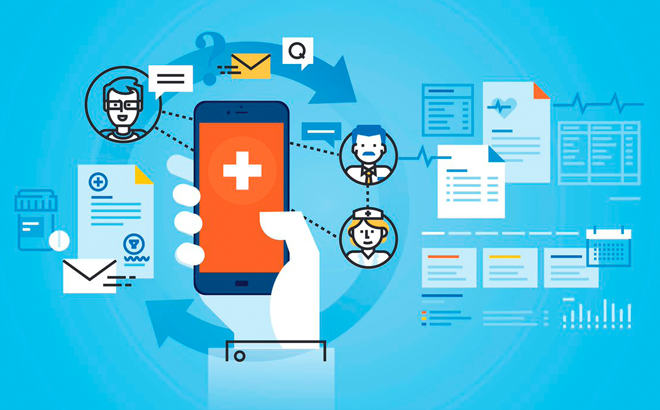8 Reasons Why EHRs are Moving to the Cloud
The global Electronic Health Record (EHR) market is driven by its adoption rates, the rise in the number of chronic diseases, and the growing geriatric population. The electronic system offers several benefits to healthcare organizations as it saves them up to USD 78 billion a year by reducing errors and providing universal access to information.
The rapid rise of EHRs can also be attributed to the fact that they are going through a transition period, with a large number of them moving to the cloud from legacy systems.
Let’s look at the reasons behind the shift with the following pointers:
- Prepare for Value-Based Care
Value-based care is making providers reduce medical costs. Healthcare institutions, therefore, have now started becoming serious about investments in their IT infrastructure tools to reduce their overall care costs. They need their IT systems to support their growth.
The value-based care has made it essential for healthcare providers to be agile, to innovate, and tweak their strategies based on constant customer feedback. Cloud-based EHRs are helping them navigate this with ease without too many investments or administrative hassles. The modern cloud-based EHRs also provide all the patient information at a single location along with the financial and clinical inputs. Think of situations where there are reduced readmissions, a boost in other healthcare-related programs, and several cost-reduction strategies.
- Better Comply and Respond to Regulatory Demands
EHR systems are synonymous with sensitive data. It is a given that during its implementation on the cloud, there will be questions about compliance and regulatory practices. The good news is that the cloud can offer a safe and secure HIPAA-compliant location to store the data, which can be easily accessed from anywhere. For the uninitiated, patient data is encrypted wherever possible under the HIPAA security rule. This becomes easier with a cloud-based system.
- Ease of Scalability and Growth
Cloud-based EHRs are flexible enough to offer healthcare firms to achieve great heights without excessive spending. This is because they get to expand without requiring extensive IT support. Think of a situation wherein the firms need additional storage for expansion. It is quite easy to add this extra space on the cloud and store some more data. As simple as that. To manage this, healthcare institutions do not need heavy investments in IT infrastructure or commit to a fixed capital expense.
- No Hassles and Costs of IT Management
Hosting EHR on the premises can be a tough task based on various complexities such as the scale of operations, various integrations with existing systems, the number of users accessing the system, etc. On the other hand, with cloud-based EHRs, organizations can get started within a matter of a few days as they don’t need to worry about any of the IT management issues. In fact, most of the hardware and software costs that are associated with the conventional EHRs are completely eliminated. The EHR providers are responsible for end-to-end management and support. Furthermore, cloud based EHRs have the most basic infrastructure requirements, which include a reliable internet connectivity, computers and compatible browsers. The implementation is also a cakewalk as there is no need to upgrade or maintain any hardware or software. This is the reason why healthcare facilities eyeing maximum ROI opt for cloud-based EHRs.
- Reduction in the Total Cost of Ownership
Just like the IT costs, the TCO or Total Cost of Ownership is also reduced considerable when healthcare organizations opt for EHRs based in the cloud. The TCOs include all the long-term and short-term payments needed to maintain, operate, implement or support the EHR solution. Cloud-based EHRs don’t need any expensive maintenance, licensing or physical servers/ hardware requirements and therefore, the total cost of ownership also reduces manifold.
- More Mature Incident Detection and Response
EHRs based in the cloud offer extreme security features, which is essential owing to the rise in cyberattacks. It is far-removed from the traditional EHRs that need manual backups, software updates and everything in between. Moreover, in the conventional EHR systems, there are some backups and updates, which if ignored, can lead to putting the systems and therefore, the sensitive data under potential threat. With cloud based EHRs, the data is centrally stored in the best, encrypted, and secure data center, which eliminates the risk of data breach. Whenever a threat is detected, it is easier to isolate the server and take the necessary response. This is done with some of the best detection response tools, procedures, policies and the lines. This streamlines the entire process and facilitates better recovery.
- 24×7 Monitoring
The next pointer is related to the detection and 24×7 monitoring. This is essential for healthcare professionals who need to access critical information on the go – anytime, anywhere. A cloud-based solution goes a long way for them in this regard as it gives them information on their fingertips anywhere in the premises of the healthcare facilities or remotely. The cloud-based solutions are monitored through automated tools on a continuous basis. The continuous monitoring and state-of-the-art backup and recovery techniques ensure that the EHRs are functional all the time and patient care is not compromised.
- Easier to Move to Smart Hospital Solutions
Hospitals are increasingly investing in technology and they are starting to embrace change in several ways in a bid to move towards a ‘smart future’. A lot of healthcare facilities are adopting cloud based EHRs as one of the ways to improve their care experience exponentially in a digitally advanced environment. These facilitates aim to provide optimized workflows, facilitate data-driven solutions, allow enhanced collaboration, make remote care available, offer affordable services, and focus on enhanced patient experience – all these things are possible with the adoption of smart hospital solutions powered by AI, data analytics, IoT, etc. A fully-functional, cloud-based EHR is the first step towards implementing these solutions.
The Road Ahead for Cloud-Based EHRs
The EHR market was valued at USD 25.4 billionin 2018 and is projected to grow at a CAGR of 6.2% to reach USD 36.0 billion by 2024. While the cloud-based EHRs are still a work in progress, there are certain challenges that can pose potential roadblocks. However, the advantages can easily outnumber those, and it is safe to say that we are more likely to see its rapid adoption in the near future, especially with the rise of smart hospitals.




